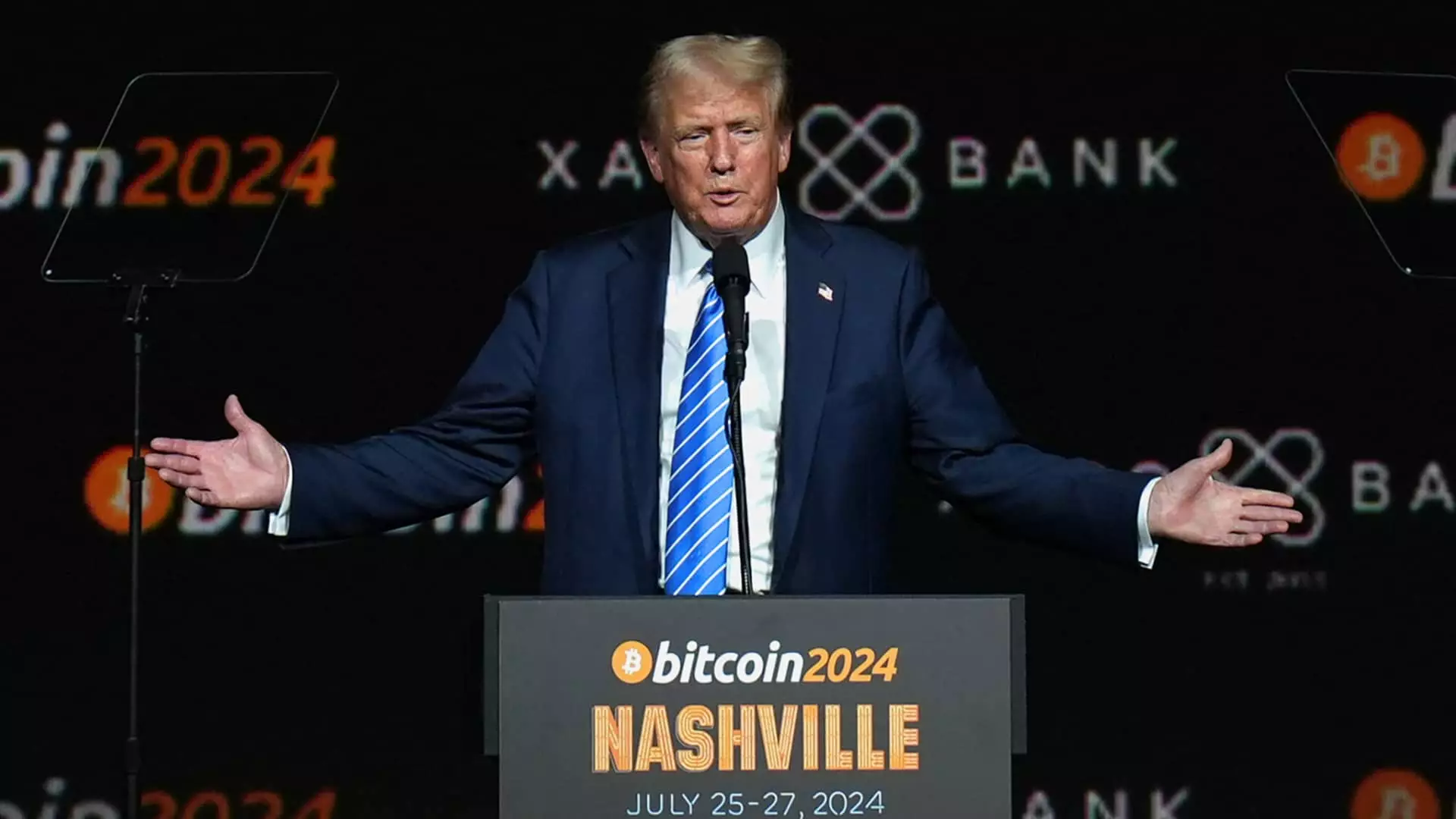The recent unveiling of the World Liberty Financial (WLF) project, closely tied to Donald Trump, has ignited significant discussions in the realms of cryptocurrency and political accountability. On a day marked by swirling political uncertainties, particularly as Trump vies for the presidency against Vice President Kamala Harris, the release of a detailed “World Liberty Gold Paper” signals not just the launch of a new crypto token but potentially foreshadows deeper implications for both financial and political landscapes.
Token Allocation and Financial Interests
At the core of WLF’s initiative is an ambitious token sale strategy, centering on a proprietary digital asset called “$WLFI.” According to the documented plans, Trumps’ family stands to benefit immensely, receiving around 22.5 billion tokens valued at an astonishing $337.5 million at the proposed launch price. Such figures pose critical questions regarding the appropriateness and ethical considerations of a political figure profiting potentially to this extent from a financial technology project during their campaign.
Moreover, the implications of Trump’s involvement are thickened by the claim that no familial figure holds a direct operational role within WLF. While this may serve to distance the project from direct political influence, the financial arrangements reveal entangled interests. Notably, 75% of the project’s net revenue is set to flow to a Delaware-based company associated with Trump, raising eyebrows regarding transparency and conflicts of interest.
Revenue Models and Operational Structures
WLF’s document delineates the operational framework aimed at establishing a crypto banking environment. By outlining various revenue streams—ranging from platform usage fees to token sale proceeds—WLF seeks to foster engagement among investors and customers. It includes a robust strategy for set-asides, where $30 million is earmarked for reserves, aimed at covering the project’s operational needs.
However, the lack of clarity concerning which revenue sources will yield returns to the Trump family exacerbates concerns over ethical governance. The concept that a political figure could legislate or regulate within the crypto space while financially connected raises questions about accountability and the integrity of such operations.
Amidst ambitious targets for raising $300 million, the actual market performance of the $WLFI token paints a stark contrast. As of the latest reports, only $12.9 million worth of tokens has been sold, an indication of investor skepticism or perhaps a cautious approach in the face of potential conflicts surrounding the Trump brand.
The initial sale’s underperformance against its lofty expectations could suggest a hesitancy among investors who remain wary of intertwining political motivations with financial aspirations. Furthermore, the opaque communication on the token’s distribution algorithm, with allocations to be changeable as per WLF’s documentation, further fuels uncertainty.
The entanglement of cryptocurrency projects with political figures is not a novel phenomenon; however, WLF’s model presents a particularly controversial instance, especially given Trump’s formidable political presence. This case raises prevalent questions regarding regulation in the rapidly evolving crypto space. Could this lead to stricter oversight of crypto projects by governments, particularly with considerations of transparency and accountability in mind?
Additionally, as WLF claims independence from political affiliations, the overarching aura of suspicion remains. Investors might grapple with the legitimacy of projects under banners of political figures as they navigate ethical consumption and investment in a politically charged marketplace.
World Liberty Financial’s emergence as a player in the cryptocurrency landscape, heavily influenced by Donald Trump, has unmasked a multitude of issues concerning ethics, governance, and investor confidence. As stakeholders assess the viability and accountability of such projects, WLF serves as a litmus test for the amalgamation of politics and financial technology. In this rapidly changing economic terrain, establishing transparency and trust is paramount, lest the controversies surrounding projects like WLF overshadow the potential advancements in the cryptocurrency domain.


Leave a Reply